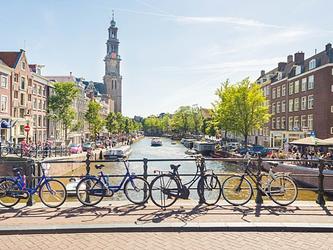How can we close the sustainability intention-behaviour gap?
In a world shaken by a pandemic, sustainability is starting to come back to the front of the global agenda and will play an even more important role than it did before Covid-19.
As the concerns over the future of our planet deepen, more and more people are stating that they want to be more environmentally friendly and more and more businesses are looking to offer solutions that cater to this desire.
However, sustainability is one of the areas where the intention-behaviour gap is most prevalent. Many people may state a high preference to make more sustainable choices, but their actual behaviour doesn’t reflect this. Research has found that most people’s intentions (e.g. I want to produce less waste) are weakly associated with their actions (e.g. to tell the baker that I do not need a bag) (Webb & Sheeran, 2006 ).
Behavioural science can shed light on two key areas in the realm of sustainability:
- What is driving this intention-behaviour gap?
- What can be done to close it and encourage more people to act in a more sustainable way?
Making more sustainable choices often requires a fundamental behavioural shift, and as a result goes against our human nature. Behavioural science has shown that human beings are habitual creatures; it is in our DNA to stick with what we know and what we have done before. We need compelling reasons and motivations to, as well as support, to change and sustain new behaviours over time.
We’ll be discussing how behavioural science helps to not only understand these behaviours, but also foster positive change during a panel at the forthcoming MRS Behavioural Science Summit. In advance of this talk, we’ve pinpointed three key challenges we’ll explore, each with its own set of barriers that need to be mitigated to close this gap:
- Ensuring that consumers are aware of the individual change needed
While there is compelling evidence that our current lifestyles are impacting the planet and that something must change imminently, the current rhetoric can be confusing in terms of what this means at the individual level. Many also feel like it is out of their control and fall victims to the ‘drop in the ocean effect’: thinking they can’t make a difference.
All of this highlights the need to clarify what is needed and create social norms around the new behaviours. Combined effort is needed to communicate a congruent message around the importance and potential impact of individual change. Leading by example has been shown to create new norms to follow, such as the ‘Greta Thunberg effect’.
- Providing relevant motivations
Sustainable action is asking us to change our engrained bias towards the present and towards immediate rewards, to now think about the future and what the best action for the future generations will be.
Probably one of the biggest challenges when it comes to driving sustainable behaviours is changing our default to choices that reward our present self rather than the intangible future self. To achieve this, we need to make the future more tangible.
For example, personalise messages highlighting the impact on ‘your grandchildren’ and provide clear feedback loops on what the impact of certain options would be. Something as simple as what WWF use in their restrooms, showing how many litres of water each of the two toilet-flushing options use, can make us realise how much water we could save in one day. Couple this with a feel-good factor of doing the right thing with a message on the lines of ‘thank you for helping us save water’ to make it even more effective.
- Making it easy
Even if people are aware of the need to change and understand the impact and benefits of their individual actions, people still struggle to act if there is a lot of effort required. This is where a number of barriers ranging from costs, time, effort, etc. come in – particularly when it comes to scaling up the sustainable solutions and making them more mainstream.
As a first step, even just simple tweaks such as changing placement in-store, e.g. moving unsustainable products from prominent displays and making sustainable options more central to the shopper journey can have a huge impact on driving trial and choice of more sustainable products.
There has never been a better time to push the sustainable agenda in public and private organisations. Consumers share a strong intent to live more sustainable lives, but they’re only human and change is hard.
As behavioural experts, it’s our job to share and explore the best interventions to help consumers make those sustainable choices, and we hope to add to the conversation at our upcoming panel discussion.
Andreea Tarasescu is research director – behavioural science lead at Walnut Unlimited
Tarasescu is speaking at the MRS Behavioural Science Summit 2021 later this month.

We hope you enjoyed this article.
Research Live is published by MRS.
The Market Research Society (MRS) exists to promote and protect the research sector, showcasing how research delivers impact for businesses and government.
Members of MRS enjoy many benefits including tailoured policy guidance, discounts on training and conferences, and access to member-only content.
For example, there's an archive of winning case studies from over a decade of MRS Awards.
Find out more about the benefits of joining MRS here.













0 Comments